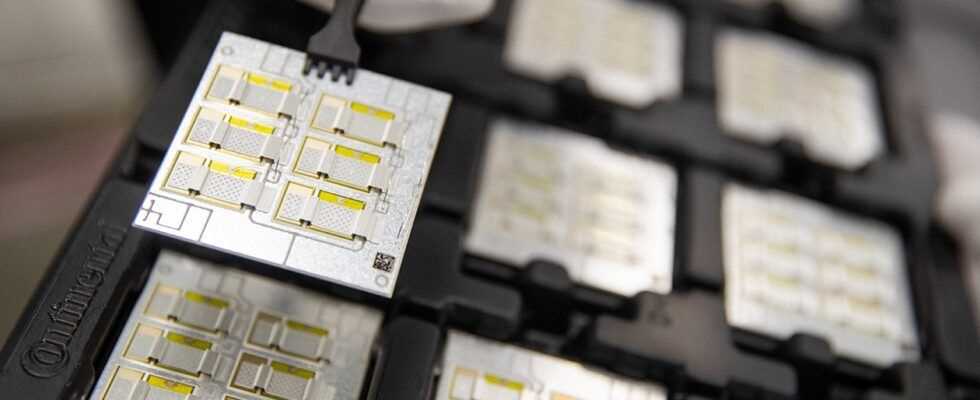Literally nothing works without computer chips: The little electronic helpers are indispensable for modern automobiles and have become a scarce commodity in recent months, which results in longer delivery times, and – this is the really bad news – this condition will continue in the not change in the coming years. According to a study by the management consultancy Roland Berger, chip demand clearly exceeds supply.
While demand will rise by 17 percent by 2022, the manufacturers’ offer will grow by just six percent. In view of the 97 percent capacity utilization of the semiconductor manufacturing facility, a rapid expansion of production is hardly possible. “There is no imminent improvement in sight.” “The discrepancy between supply and demand for semiconductors is growing”, explains Michael Alexander, partner at Roland Berger. “An imminent improvement is not in sight. Because the bottleneck has structural reasons that lie in the current design of the supply chains. The chip scarcity will persist into 2023 and likely beyond. The announced additional capacities are not sufficient to cover the demand. ”The bottleneck is“ old ”chips. The situation will also worsen because the new capacities are not being built up for the production of older semiconductors. This hits the automotive industry particularly hard because the manufacturers with their current design philosophy are still relying on older generations of chips. The supply bottleneck is also exacerbated by the fact that some vehicle manufacturers are now building up stocks. At around 95 percent, the older generation of semiconductors currently make up the lion’s share of the electronic helpers working in the current electronic architectures of cars with internal combustion engines. The remaining five percent is accounted for by the latest generation of chips, although the automotive industry is currently on the way to reorganizing the electronics in the models. However, according to the research, it will take more than five years for traditional companies to make this change. “In the long term,” says Thomas Kirchstein, Principal at Roland Berger, “manufacturers and their suppliers have to change their design philosophy in order to keep up with the dynamic changes in capacity in the semiconductor industry.” The new generation of chips is primarily used for autonomous driving Established brands lagging behind While the established manufacturers are still relying on older semiconductors, the newly founded companies, which focus primarily on electric cars, benefit from the development of the new semiconductor generation and thus gain a head start compared to the established brands. “The models produced by the new providers rely on advanced architectures and use the latest chips. These semiconductors make up the bulk of the investment, so these companies have an advantage, ”the study notes. And: “Therefore, the automobile manufacturers shouldn’t wait for the end of the crisis, but rather introduce their own strategic measures.” The authors of the study find that it is not just technical reasons that can prolong the supply crisis. Climate change and political uncertainties are making the supply chain increasingly unpredictable. For example, manufacturers in Southeast Asia are increasingly suffering from tropical storms that interrupt their production, and in Taiwan periods of drought, which endanger the water requirements of the factories, pose problems for manufacturers. For example, the world’s third largest Taiwanese chip producer TSMC needs 156,000 tons of water – per day. In addition, there are problems in international shipping and the associated rising transport costs. In addition, the problems are largely homemade: with the beginning of the corona pandemic, most manufacturers simply reduced the quantities of chips they ordered from their suppliers. They immediately concluded long-term framework agreements with other customers – and now they no longer have any capacity for the car manufacturer. Tesla and Polestar have not changed anything in their supply contracts and are therefore pretty much the only ones without long delivery times. Instead of sometimes more than a year, customers only wait a few weeks for their ordered car. (SPX)
source site-13
